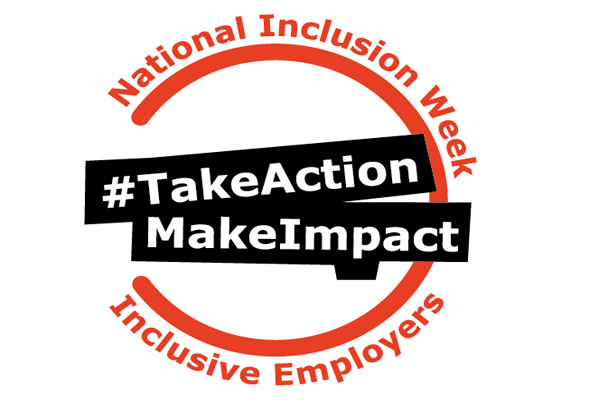NATIONAL INCLUSION WEEK: How Technology can help to provide more inclusive workplaces?

The theme of National Inclusion Week this year is “Take Action Make Impact”, which is a message designed to get organizations and individuals thinking about what actions they can take and what positive impact these actions could and should have for marginalized colleagues.
WHAT IS NATIONAL INCLUSION WEEK?
National Inclusion Week is an annual week of workplace activities and events that may highlight the importance of inclusion across the UK. It is an opportunity for companies to get connected and engage with people and employees who are passionate about inclusion in the workplace and elsewhere. For 2023, National Inclusion Week is taking place from the 25th September to the 1st October , and the theme is “Take Action Make Impact”, a call to action for everybody within an organization, not just leadership / HR.
WHY IS SO IMPORTANT?
National Inclusion Week in the UK is an essential event to promote and celebrate inclusivity in all aspects of society, including workplaces, educational institutions, and communities. The week provides an opportunity to raise awareness about the challenges and barriers that marginalized and underrepresented groups face. It offers a platform for educating individuals and organizations on the significance of diversity, equity, and inclusion (DEI).
In the workplace, National Inclusion Week can boost employee engagement and morale. When employees see their organizations actively participating in DEI initiatives, it can lead to a more positive and inclusive workplace culture.
HOW AI CAN HELP TO IMPROVE INCLUSION IN THE WORKPLACE?
AI can indeed play a significant role in improving inclusion in the workplace, particularly in the context of recruitment and other HR processes. However, it's essential to use AI thoughtfully and responsibly to mitigate biases rather than reinforce them. Here's how AI can help improve workplace inclusion:
- Unbiased Screening and Selection:
AI-powered applicant tracking systems (ATS) can screen resumes and applications without being influenced by biases related to gender, race, or other protected characteristics. This helps ensure that candidates are evaluated based on their qualifications and experience rather than personal attributes.
- Diverse Sourcing:
AI tools can help identify a more diverse pool of candidates by searching for skills and experience rather than relying on traditional keywords. This can promote diversity and inclusion from the very beginning of the recruitment process.
- Structured Interviews:
AI can facilitate structured interviews that follow predefined criteria, reducing the influence of unconscious biases during the interview process. It can also analyze interview responses based on objective criteria.
- Anonymized Applications:
Some AI-driven recruitment platforms allow for anonymized applications, removing personally identifiable information to ensure candidates are evaluated solely on their qualifications and experience.
- Diversity Analytics:
AI can help organizations track and analyze diversity data at various stages of the recruitment process, identifying potential bias hotspots and areas for improvement.
- Training and Development:
AI-powered learning platforms can offer personalized training and development recommendations, helping employees of all backgrounds access opportunities for growth and skill development.
- Inclusive Language Detection:
AI can be used to analyze job descriptions and communications for potentially biased or exclusionary language, helping organizations create more inclusive messaging.
- Real-time Feedback:
AI-driven feedback systems can provide real-time feedback to employees, helping them understand and correct potentially biased behavior.
- Employee Resource Groups (ERGs):
AI can help identify potential ERG members and facilitate networking and collaboration among employees with shared interests and backgrounds.
- Data-Driven Insights:
AI can analyze employee data to identify patterns related to inclusion and diversity, enabling organizations to make informed decisions and develop targeted inclusion initiatives.